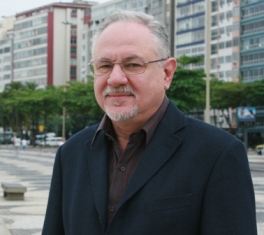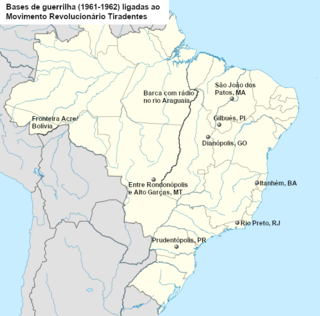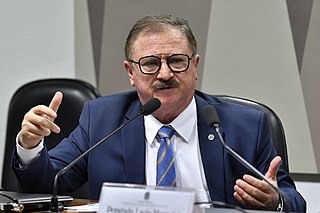
Maoism, officially Mao Zedong Thought, is a variety of Marxism–Leninism that Mao Zedong developed while trying to realize a socialist revolution in the agricultural, pre-industrial society of the Republic of China and later the People's Republic of China. A difference between Maoism and traditional Marxism–Leninism is that a united front of progressive forces in class society would lead the revolutionary vanguard in pre-industrial societies rather than communist revolutionaries alone. This theory, in which revolutionary praxis is primary and ideological orthodoxy is secondary, represents urban Marxism–Leninism adapted to pre-industrial China. Later theoreticians expanded on the idea that Mao had adapted Marxism–Leninism to Chinese conditions, arguing that he had in fact updated it fundamentally and that Maoism could be applied universally throughout the world. This ideology is often referred to as Marxism–Leninism–Maoism to distinguish it from the original ideas of Mao.

The Communist Party of Brazil is a political party in Brazil. The PCdoB officially adheres to Marxist–Leninist theory. It has national reach and deep penetration in the trade union and student movements.

The Landless Workers' Movement is a social movement in Brazil aimed at land reform. Inspired by Marxism, it is the largest such movement in Latin America, with an estimated informal membership of 1.5 million across 23 of Brazil's 26 states.
Talian, or Brazilian Venetian, is a Venetian dialect spoken primarily in the Serra Gaúcha region in the northeast of the state of Rio Grande do Sul in Brazil. It is also spoken in other parts of Rio Grande do Sul, as well as in parts of Espírito Santo and of Santa Catarina.

Bernardo Sorj is a Brazilian social scientist, retired professor of Sociology at the Federal University of Rio de Janeiro. He is Director of The Edelstein Center for Social Research and of the Plataforma Democrática Project. He has published 30 books and more than 100 articles, on Latin American political development, international relations, the social impact of new technologies, social theory and Judaism.

The Homeless Workers Movement is a social movement in Brazil. It originated from the Movimento dos Trabalhadores Rurais Sem Terra. Although the MTST can trace its first urban activism efforts to the occupation of Campinas in São Paulo during the 1997 National People's March, this intervention was organized within the Landless Rural Worker's Rural Movement (MST) structure. The first proper occupation as a new sociopolitical actor, distinct from the MST, took place in Guarulhos in 2002. It was named after Anita Garibaldi, considered to be a radical social reformer during her lifetime.

The history of Pernambuco can be roughly divided into two periods: first, when the region was a colony of Portugal and, second, when it was a component of the nation of Brazil. Not to be overlooked, however, are the established indigenous peoples of the region, numerous revolts and short-lived independence movements, French incursions, and a Dutch occupation.

The peasant leagues were social organizations composed of sharecroppers, subsistence farmers and other small agriculturalists. They originated in the agreste region of Northeastern Brazil in the 1950s, organized by the Brazilian Communist Party (PCB), and were later picked up by Francisco Julião, a member of the Democratic Labor Party (PDT) and other socialists. The leagues were founded to improve rural workers' living standards; their later objective was to oppose the region's power of latifundia.

Clodomir Santos de Morais was a Brazilian sociologist who originated the Organization Workshop (OW) and the associated Activity-based Large Group Capacitation Method (LGCM).
Agrarian socialism is a political ideology that promotes social ownership of agrarian and agricultural production as opposed to private ownership. Agrarian socialism involves equally distributing agricultural land among collectivized peasant villages. Many agrarian socialist movements have tended to be rural, locally focused, and traditional. Governments and political parties seeking agrarian socialist policies have existed throughout the world, in regions including Europe, Asia, North America, Latin America, and Africa.

Guevarism is a theory of communist revolution and a military strategy of guerrilla warfare associated with Marxist–Leninist revolutionary Ernesto "Che" Guevara, a leading figure of the Cuban Revolution who believed in the idea of Marxism–Leninism and embraced its principles.
Marxism–Leninism–Maoism (MLM) is a political philosophy that synthesizes and builds upon Marxism–Leninism and the thought of Mao Zedong. Marxism–Leninism–Maoism was first formalized by the Shining Path in 1982.
The Slaughter of Corumbiara was a violent conflict that occurred on August 9, 1995, in the municipality of Corumbiara, located in the state of Rondônia, Brazil. The conflict erupted when police forces, alongside armed gunmen recruited from local farms, attacked a group of landless workers who were occupying an area of unproductive land. The violence resulted in the deaths of 12 people, including a nine-year-old child and two policemen.

The Popular Brigades is a socialist Brazilian political organization founded in September 18, 2011, in São Paulo. It emerged from the merger of four previous organizations and pursues strategic goals such as ending Brazil's dependency as well as the establishment of a sovereign and popular political regime. This philosophy is systematized in the organization's motto: Open Political Unity for a New Majority, which means the formation of a broad political field capable of consolidating itself as an alternative for the emancipation of the Brazilian people against a political regime built by the "Casa Grande" and the "Casa Branca".

The 2017 Brazilian general strike took place on 28 April, 100 years after Brazil's first general strike in June 1917. The movement was a protest against reforms of labor laws, which were later adopted and social security proposed by Michel Temer government and pending in National Congress of Brazil.

Report on an Investigation of the Peasant Movement in Hunan or Inquiry into the Peasant Movement of Hunan of March 1927, often called the Hunan Report, is one of Mao Zedong's most famous and influential essays. The Report is based on a several month visit to his home countryside around Changsha, capital of Hunan in early 1927. The Report endorses the violence that had broken out spontaneously in the wake of the Northern Expedition, makes a class analysis of the struggle, and enthusiastically reports the "Fourteen Great Achievements" of the peasant associations (农民协会).

The Tiradentes Revolutionary Movement(MRT) was a clandestine political group linked to the Peasant Leagues and disbanded in 1962. Under the influence of the Cuban Revolution, and together with members of the Leagues, it aimed at a socialist revolution with peasant bases in Brazil. Eight guerrilla bases were created in the country, among which the one in Dianópolis, Goiás (now Rio da Conceição, Tocantins) was discovered at the end of 1962.

Nabhan Garcia is a Brazilian politician and farmer, who was the Secretary of Land Affairs in the government of President Jair Bolsonaro, in addition to being appointed as president of the Rural Democratic Union. A member of the Brazilian branch of the Nabhan family, he is the son of Sofia Nabhan Garcia and Rafael Garcia Martins.
The armed struggle against the Brazilian military dictatorship involved several actions promoted by different left-wing groups between 1968 and 1972, the most severe phase of the regime. Despite its resistance aspect, the majority of the groups that participated in the armed struggle aimed to achieve a socialist revolution in Brazil, inspired by the Chinese and Cuban revolutions. Although some actions were held between 1965 and 1967, the confrontation deepened after the proclamation of Institutional Act Number Five (AI-5) in 1968.














